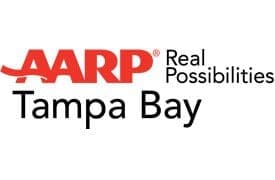St. Petersburg, Fla. – As Florida heads into the 2020 hurricane season June 1, Sunshine State residents face a new uncertainty: Planning for the disruption and danger of a hurricane while also juggling concerns about a pandemic.
“We are in uncharted waters,” said Jeff Johnson, AARP’s Florida state director. “There are many elements of our usual hurricane-preparation routines that we’re going to have to consider changing.”
“But one thing isn’t changing at all – the need to prepare now for hurricanes,” Johnson said. “Never has the need for advance preparation been clearer.”
For example, Johnson said, these topics are important to consider:
- Sheltering at home or with friends or family: The Centers for Disease Control and Prevention (CDC) have issued new guidance, urging Americans to consider sheltering in place or evacuating to the homes of friends or family members outside the storm area. The CDC guidance recognizes that in the midst of a pandemic, there will be some risk of infection in a hurricane shelter.
If you decide to go to a shelter, observe social-distancing rules while there, including remaining at least six feet apart, wearing a cloth face covering and frequently washing your hands. The CDC is warning local emergency-management officials that opening a large shelter – one holding more than 50 people – should be considered a last resort. And if you go to a shelter, prepare to quarantine yourself for 14 days afterward.
- Evacuation plans: For years, AARP Florida has encouraged Floridians to make a plan for where they’d go if they needed to evacuate. Now it’s important to recognize that some hotels may be closed or operating with reduced staff because of the pandemic. It’s best to call ahead to ensure that you will have the ability to find accommodations if needed.
Also, be prepared to protect yourself from coronavirus while you travel. Take several cloth or other masks along, so you can change masks if needed. Disinfect touch surfaces, such as gas pump control screens and gas pump handles, before and after touching them. And wash or sanitize your hands often.
- Get your kits ready: It’s long been standard practice for Floridians to prepare two kits as hurricane season begins – a “Stay Kit” so they are prepared if they choose to ride out a storm at home and a “Go Kit” if they need to evacuate in the face of a major storm.
AARP Florida for years has provided checklists for “Stay” and “Go” kits.
But now there are new additions to the list: Include alcohol-based sanitizing wipes, several cloth masks, a small bottle of bleach and nitrile or latex rubber gloves in both kits.
Among the most important steps to take in advance of a storm is to consider whether you should register for a special needs shelter registry, Johnson noted. First responders use the special-needs registry as a valuable reference when planning where to place special needs shelters in advance of hurricanes and other emergencies. They also use the registry to check on Floridians in the aftermath of a storm.
If you need to register, please go to the Florida Special Needs Registry, select your county of residence and follow the instructions to register. If your loved one is living with dementia or is otherwise unable to register, you can register them as their caregiver.
For updated information, check our disaster-preparedness website or our AARP Florida Facebook page as the hurricane season progresses. “Forecasters are telling us it could be an active hurricane season in 2020,” Johnson said. “Now’s the time to make your plan, check your ‘Stay’ and ‘Go’ kit and get ready for whatever this hurricane season brings us.”

